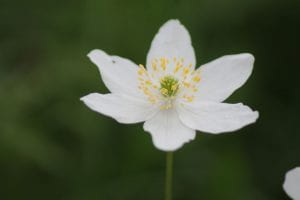 By Andy Winfield
By Andy Winfield
So, we’re at 2024, which seems a bit weird. 2020 seemed like it would never end, and now time is swishing by. Marking duration with dates and times is now baked into our way of existing; getting somewhere by a certain hour and organising an event for a particular date is how our lives work. St Augustine wrote in 400AD “No time is wholly present, all time is forced on by the future”. That was said a long time ago, and that idea has only accelerated. Humans today, myself included, are constantly looking ahead to the next thing, squeezing ever onwards. But what about now? What about the present? In the natural world, and the Botanic Garden, there are moments that aren’t defined by our perceptions of time; these moments give us opportunities to disembark the time train for a moment, and observe what’s happening right now, in the present. (more…)



